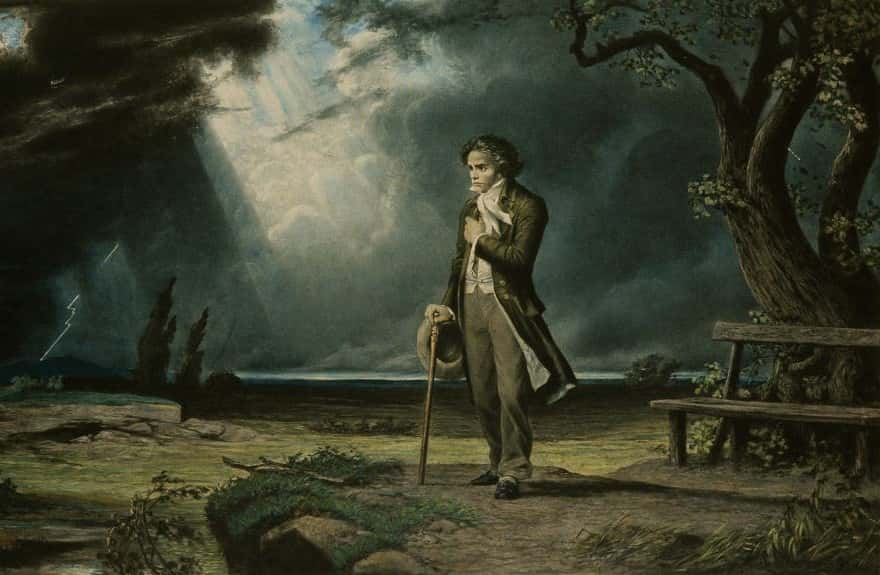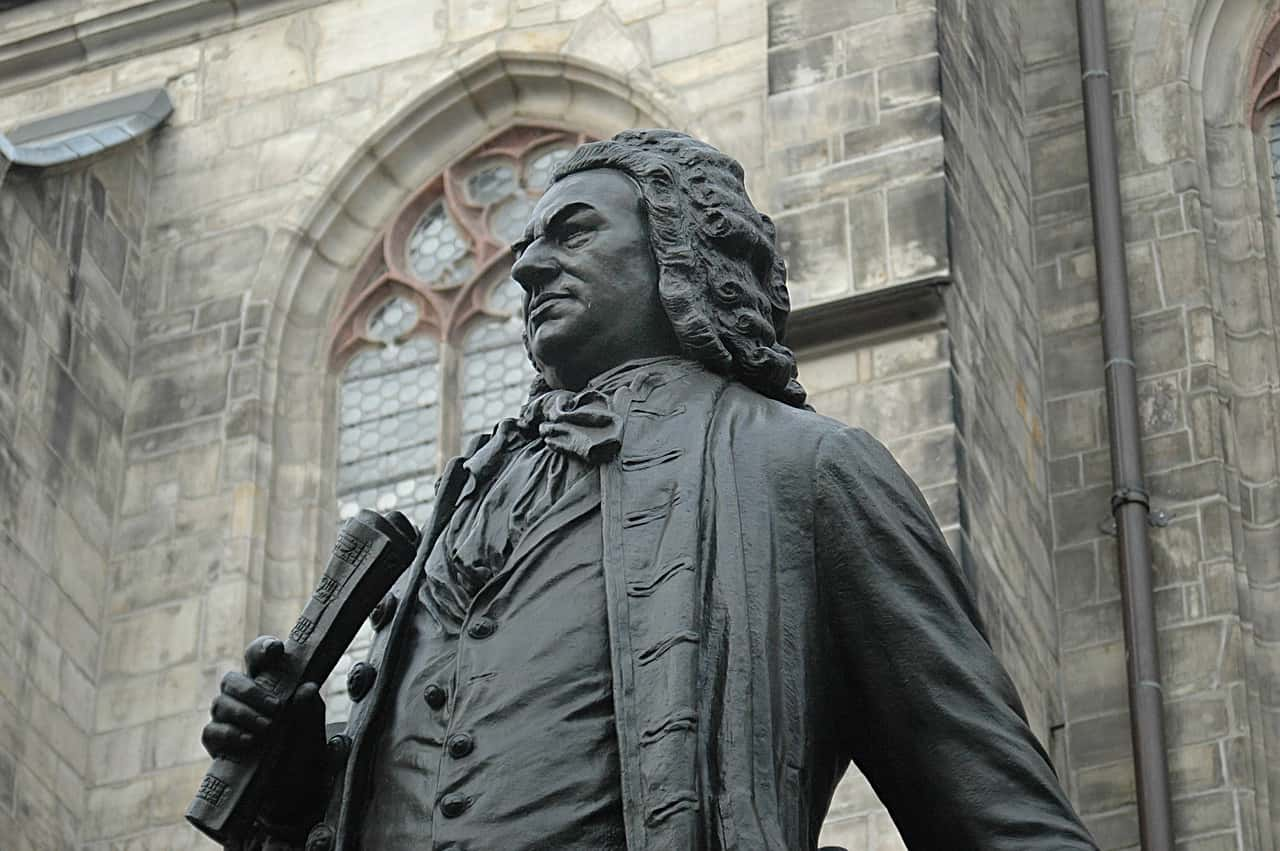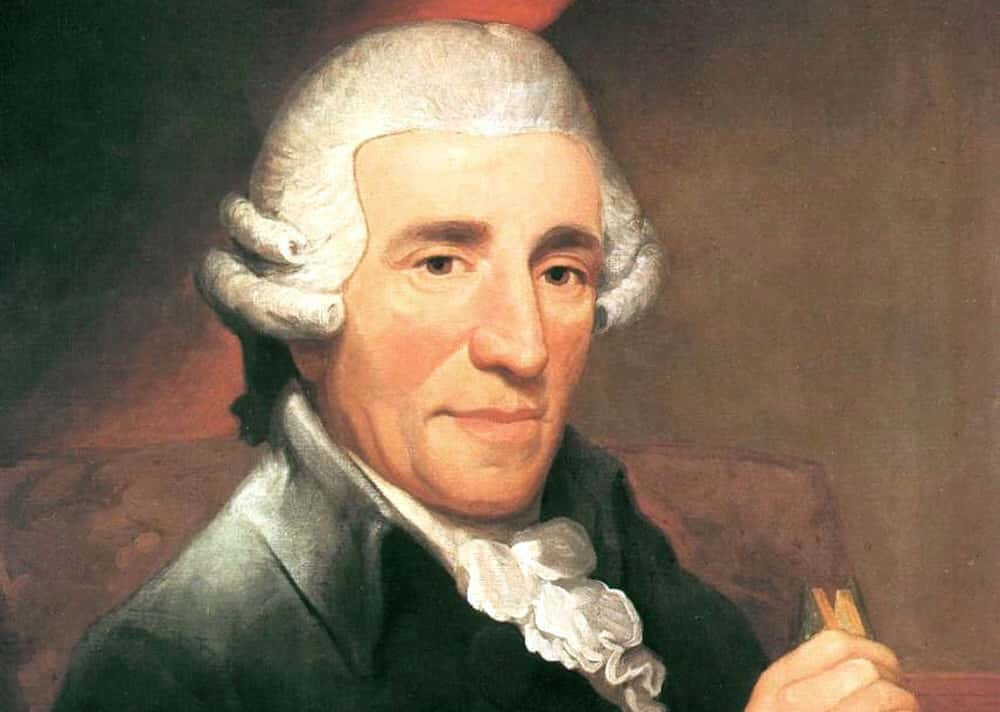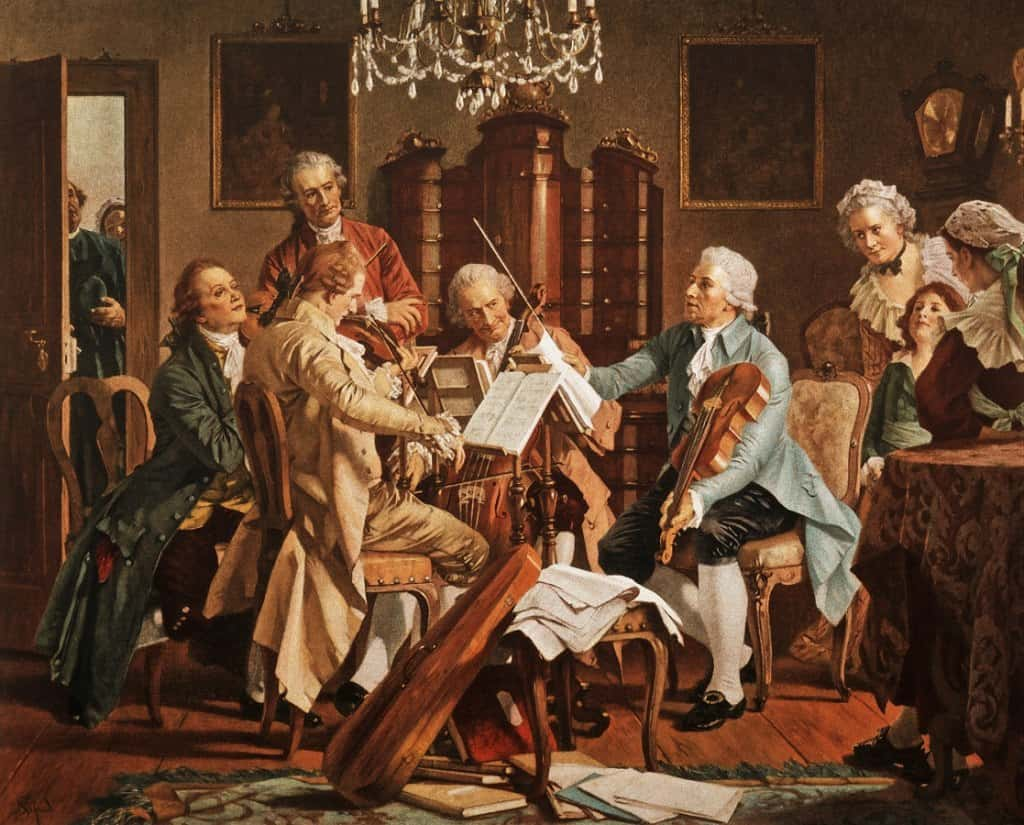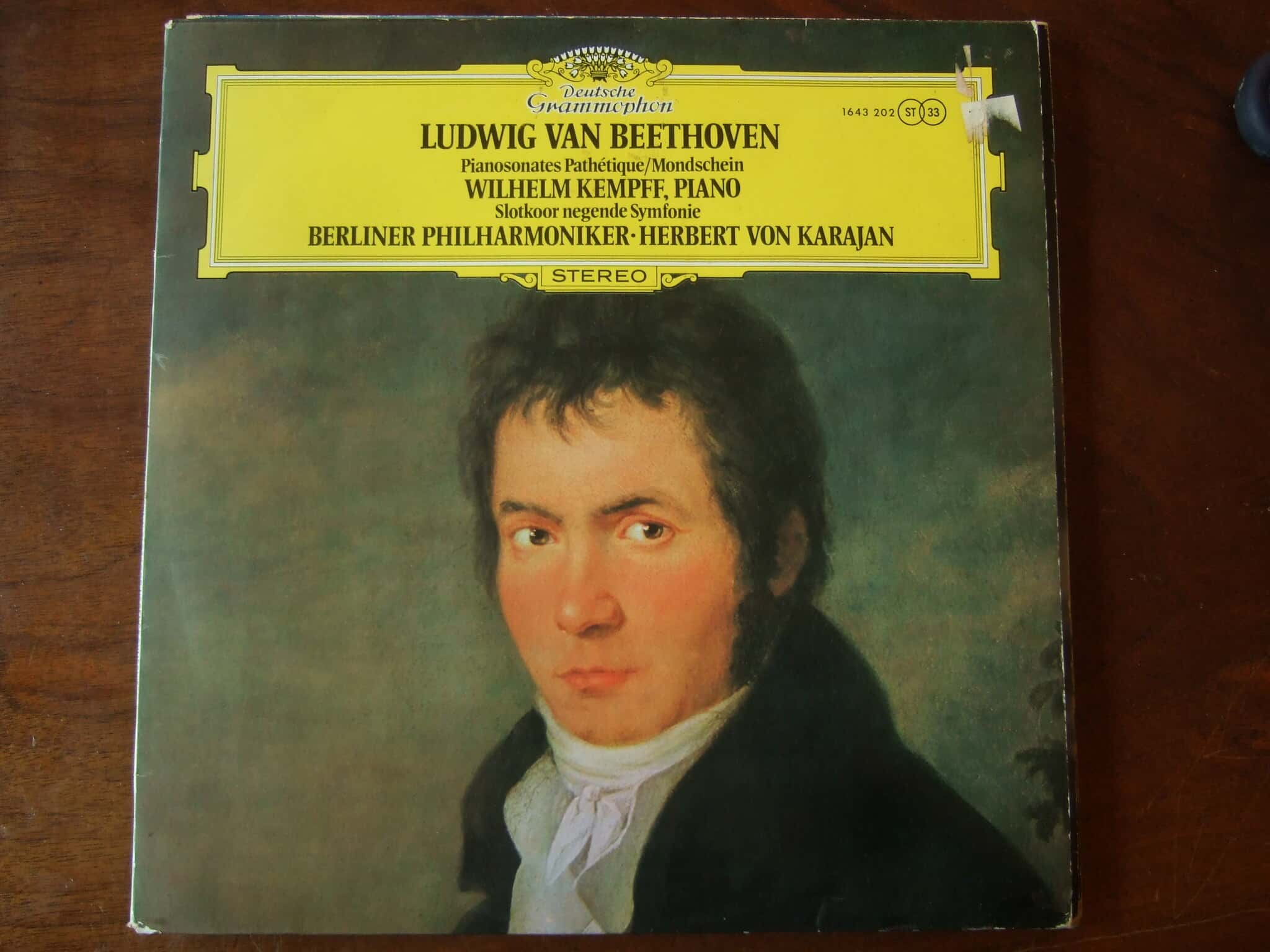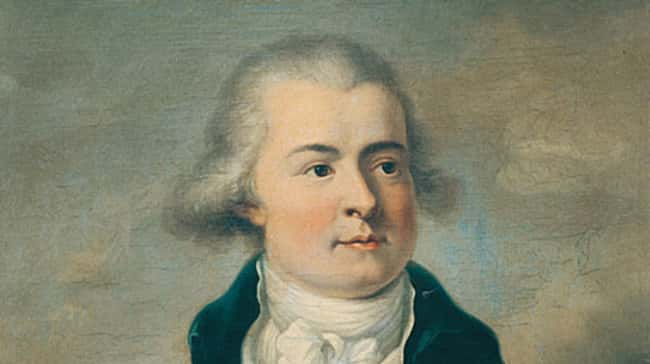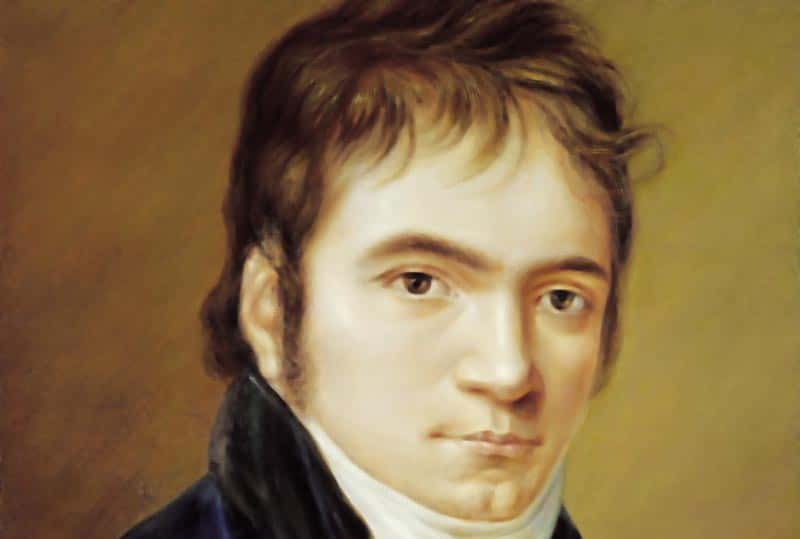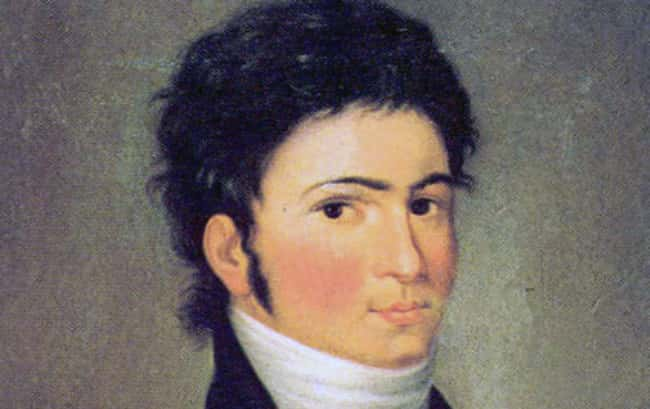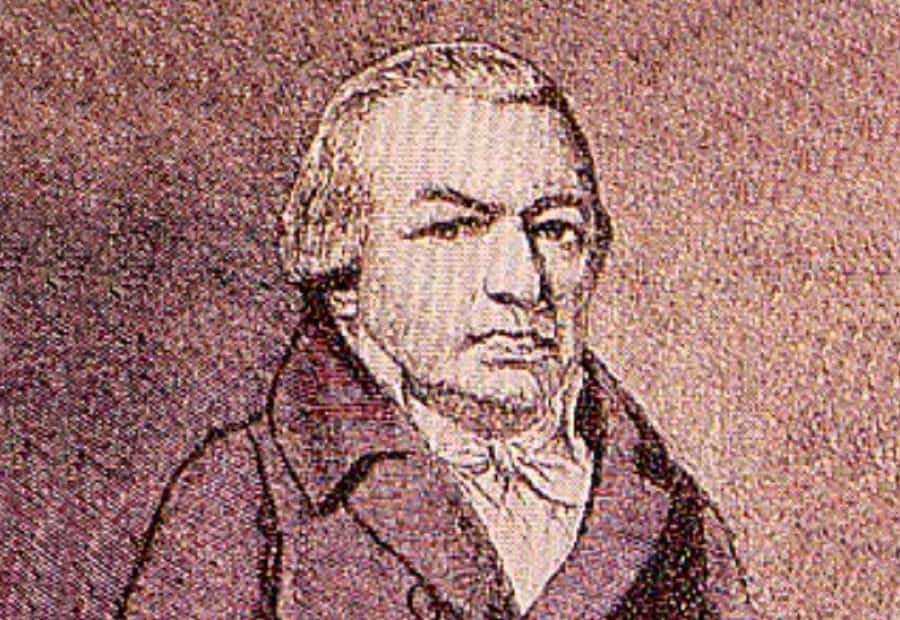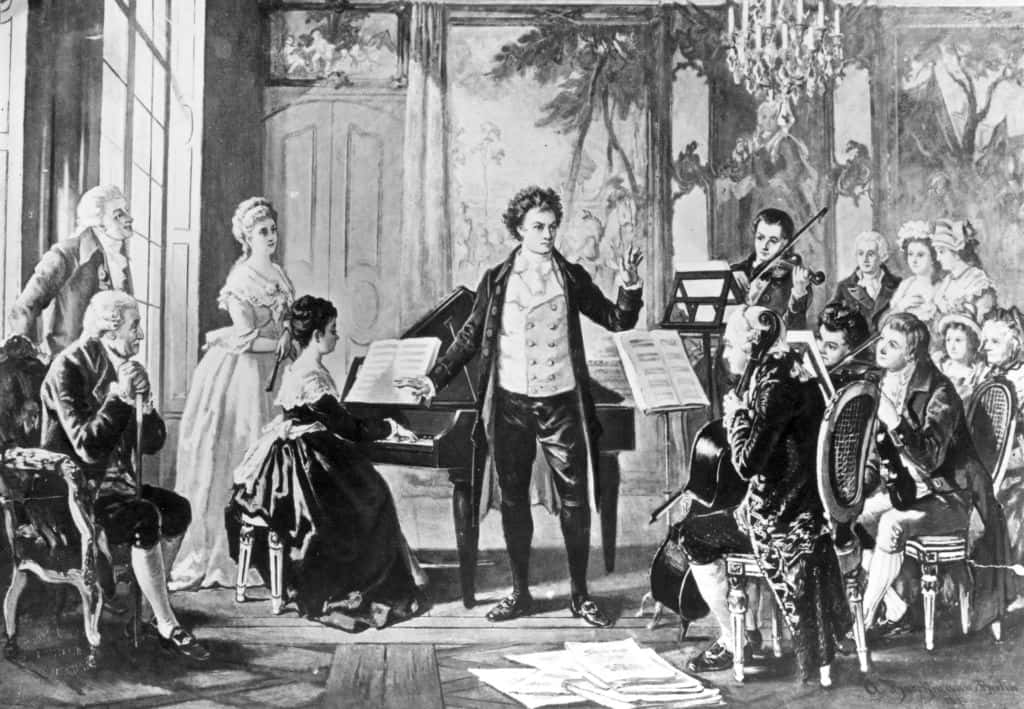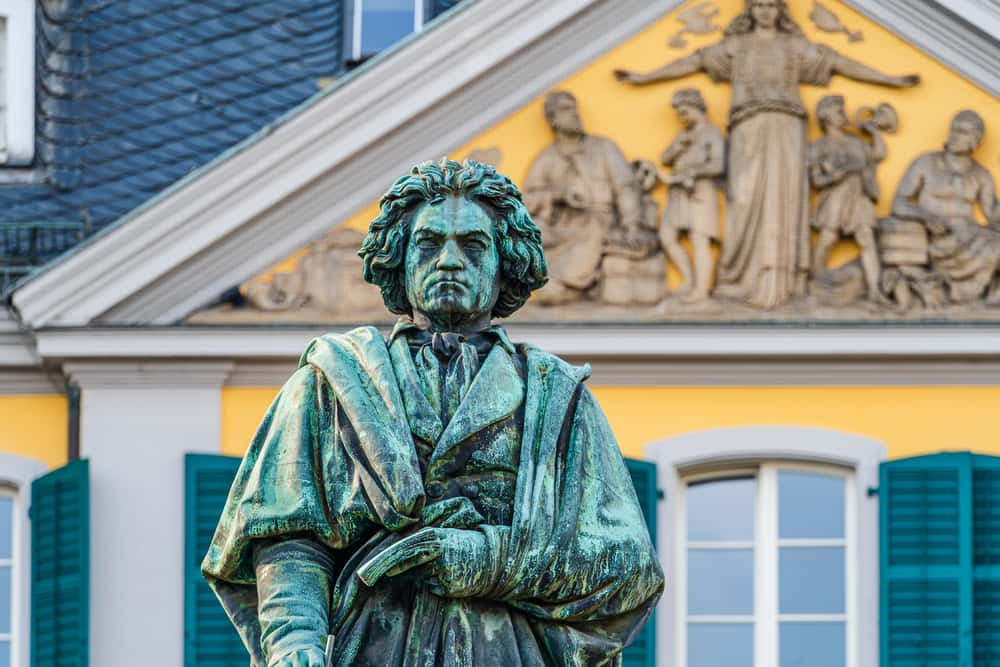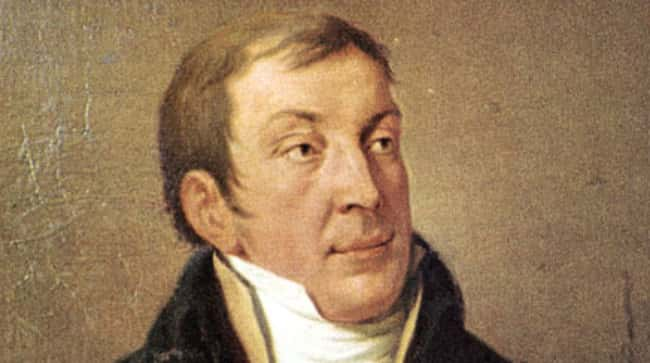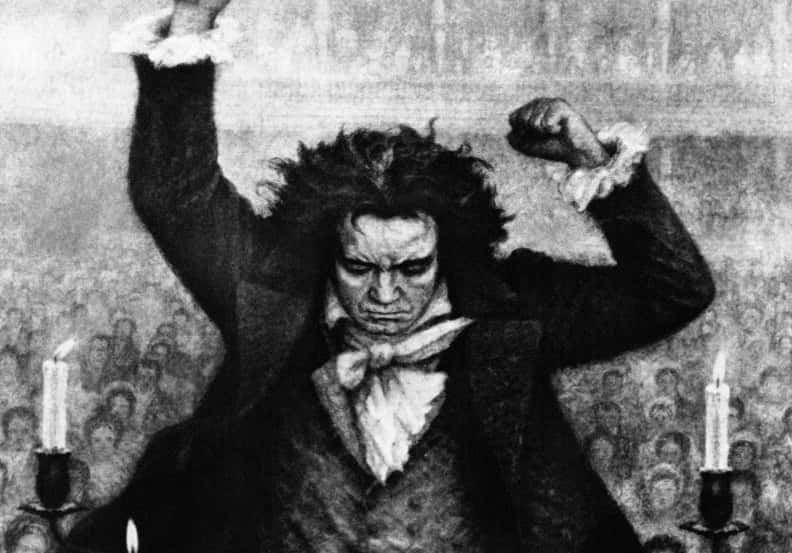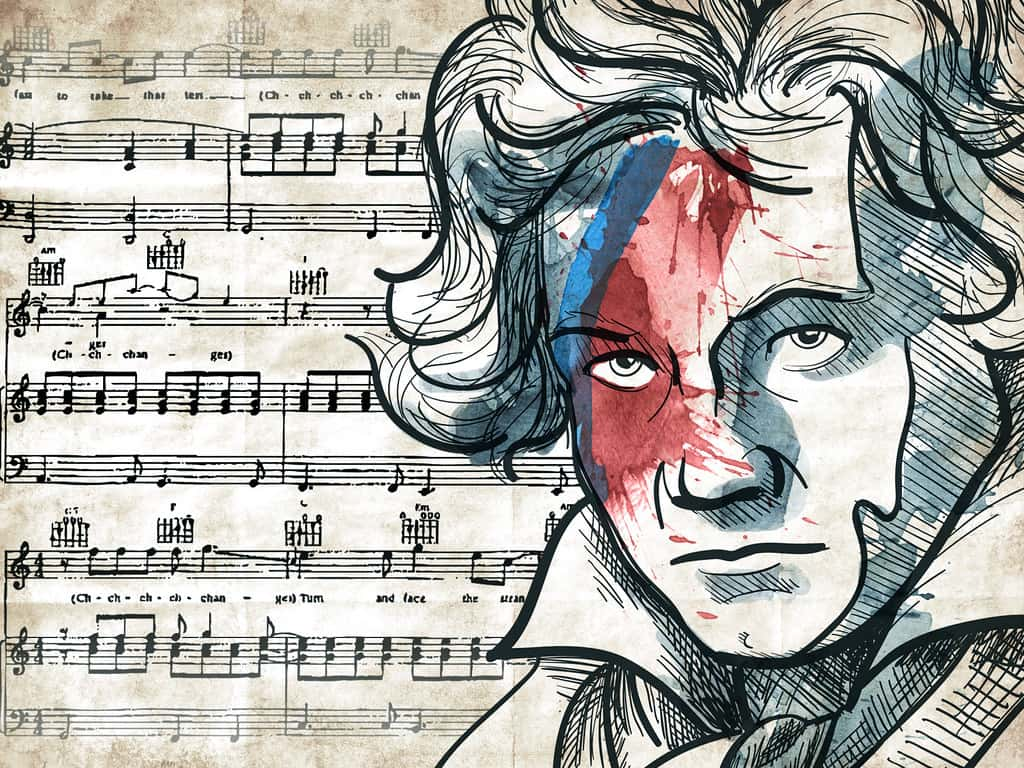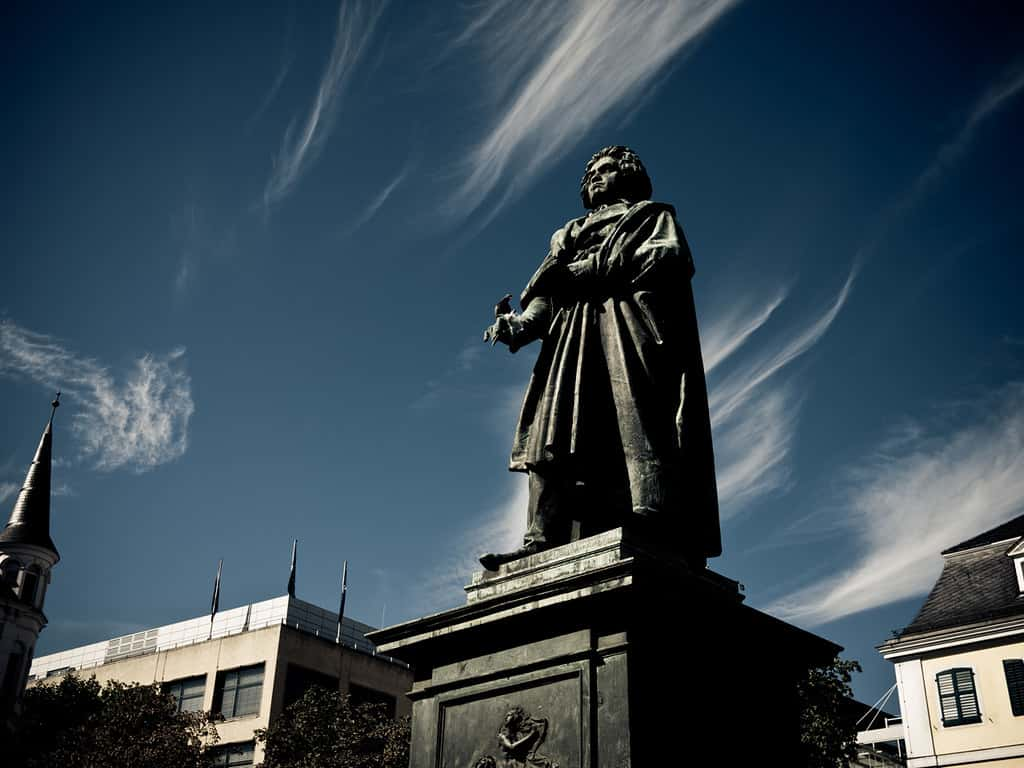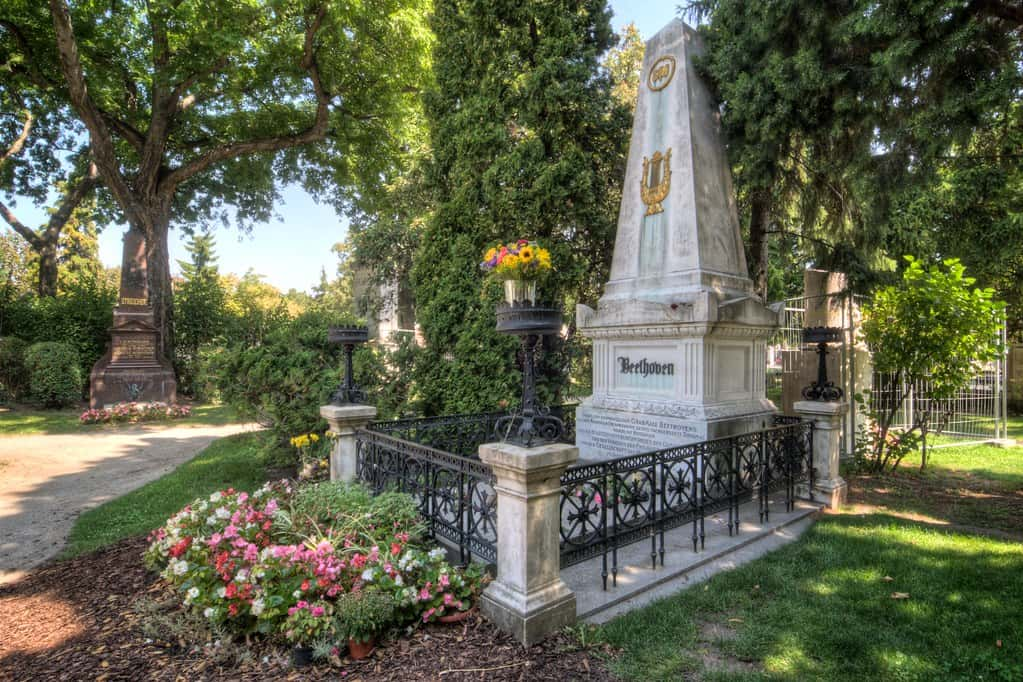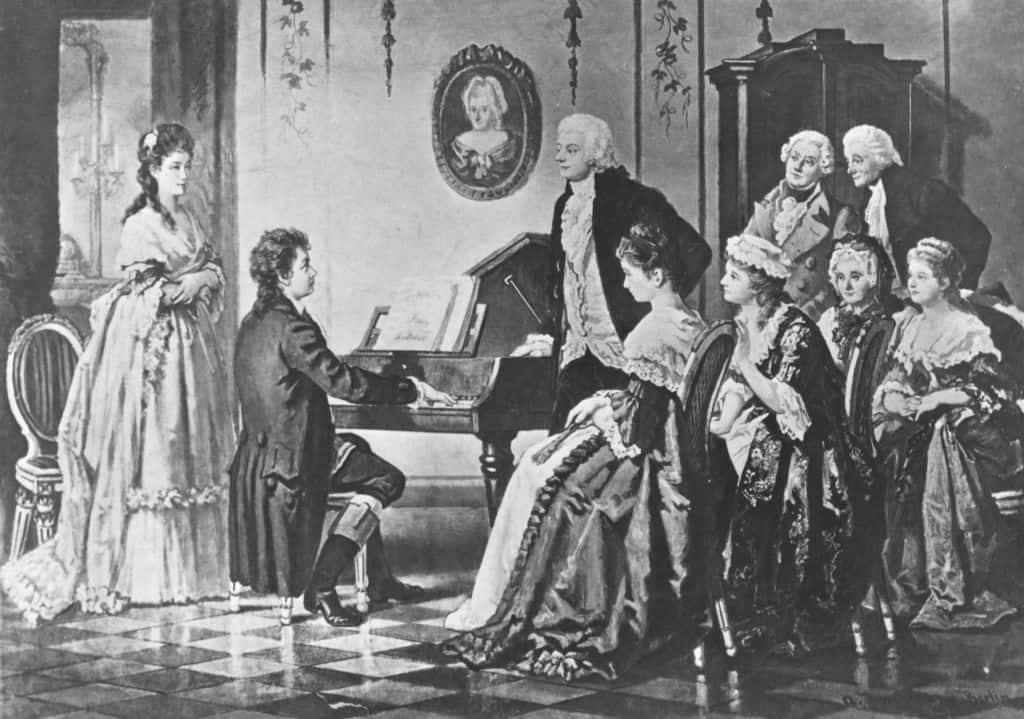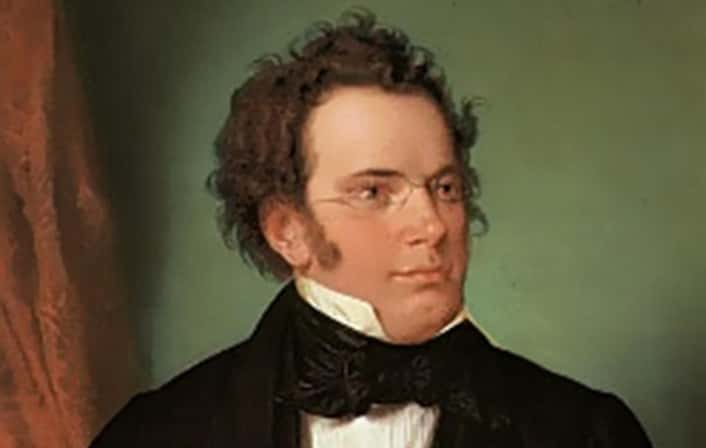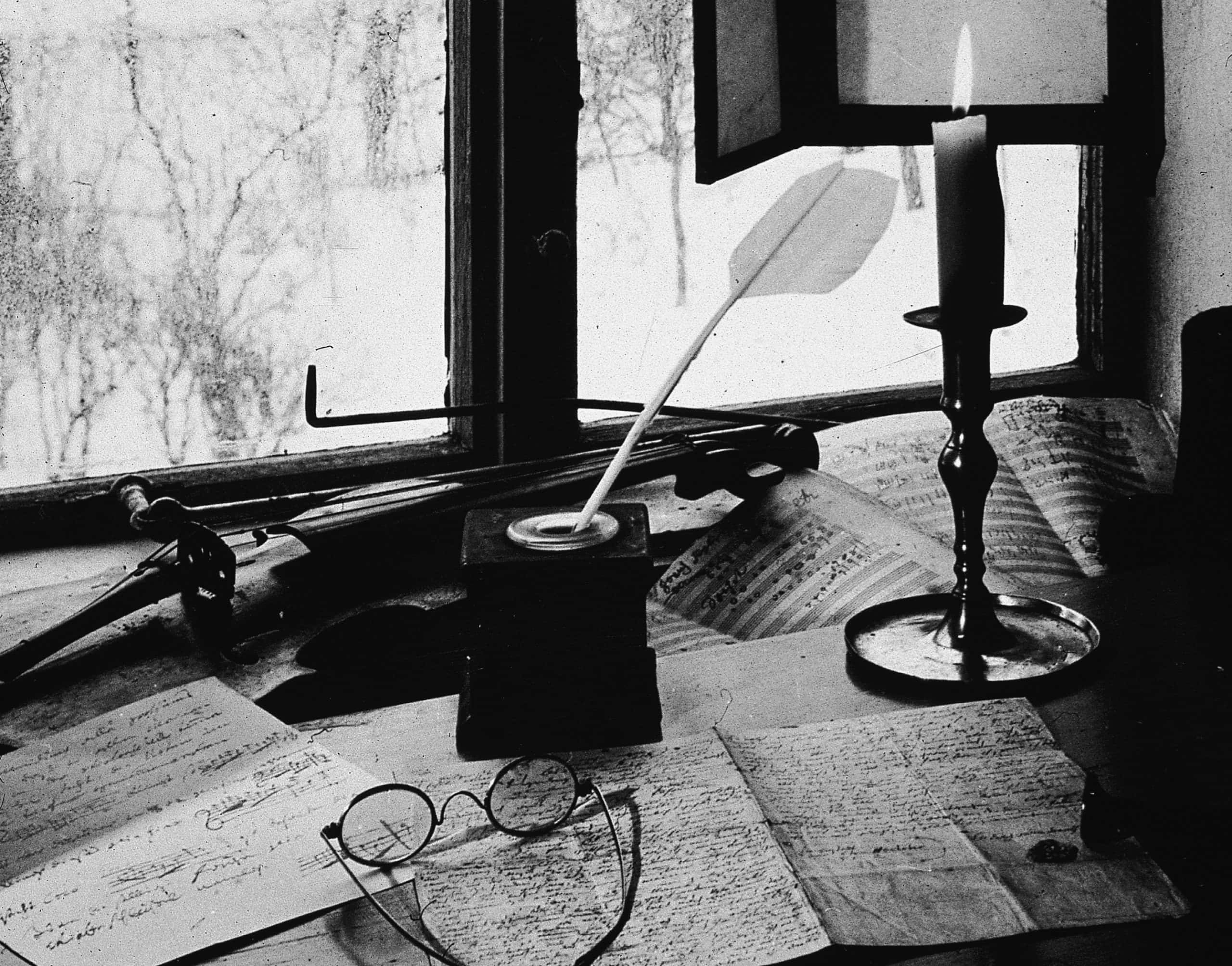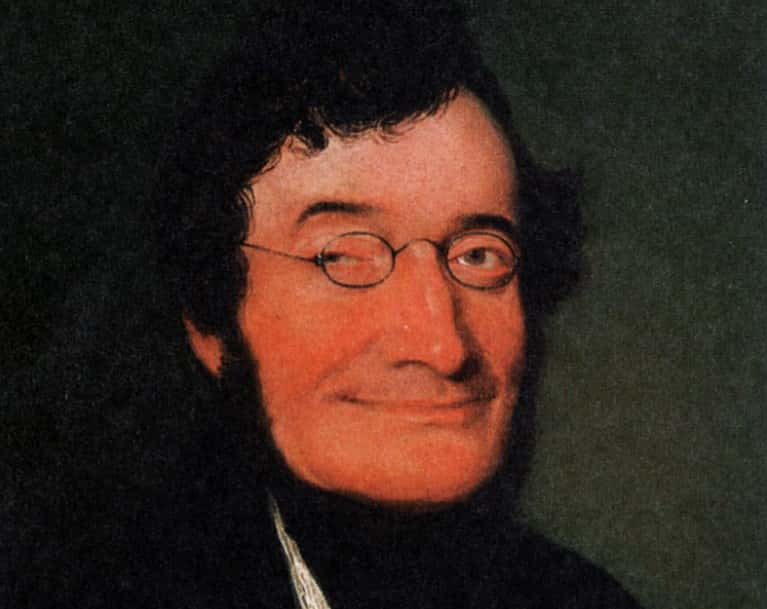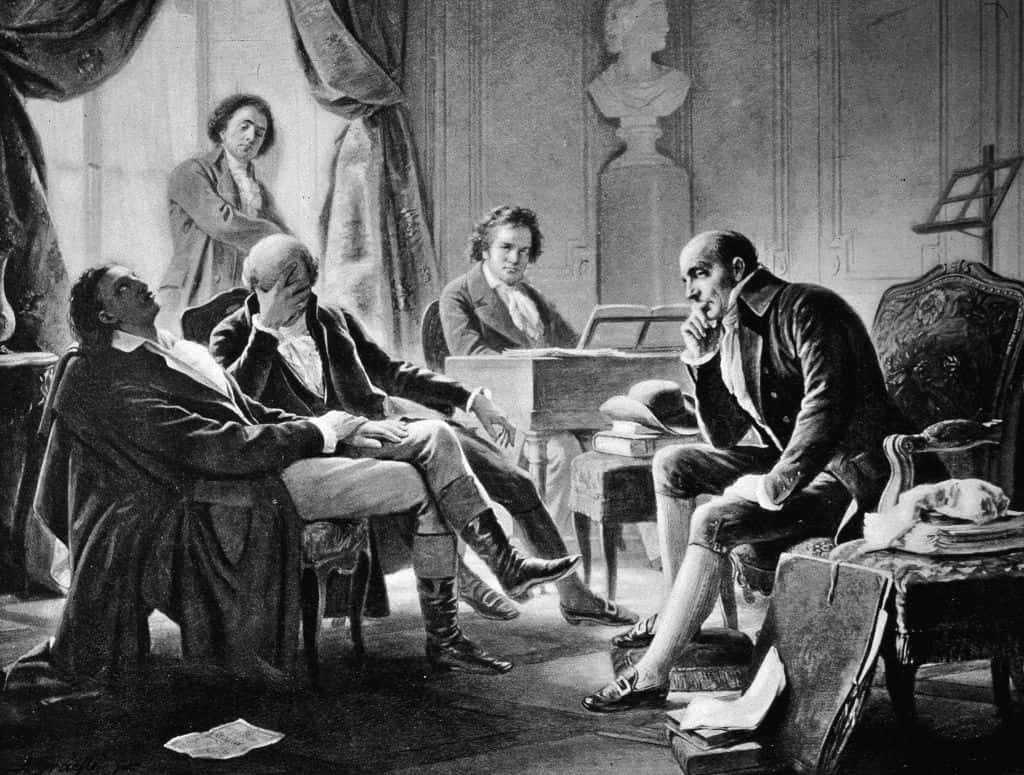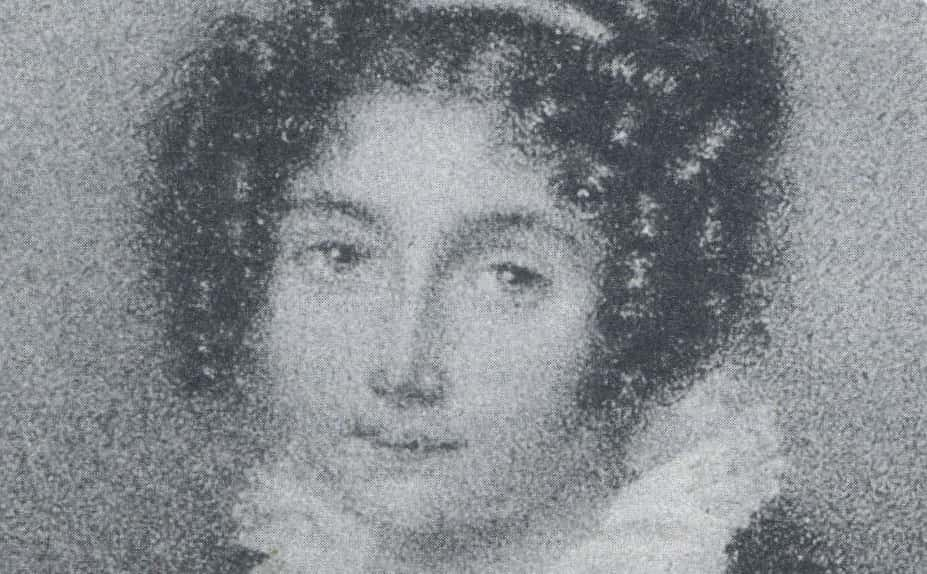One of the most famous names in classical music, Ludwig van Beethoven has made some of the most memorable and reused pieces of music that western civilization has ever known. But he also led an anguished life, and was pursued by his personal demons all the way to his grave. Here are 43 facts about this legendary composer, warts and all.
Ludwig Van Beethoven Facts
43. Descended From Foreigners!
Despite being born in the German city of Bonn, Beethoven’s family was originally from what is now Belgium (hence the “van” in their name rather than “von”). This actually would plague Beethoven’s life due to his not being from an older, respectable German family.
42. How Old Do I Look?
There is no official record that lists Beethoven’s date of birth. However, there is a surviving record that reports that he was baptized on the 17th of December 1770. According to the traditions of the time, Catholic children were baptized the day after their birth, which has led most scholars to accept December 16, 1770 as Beethoven’s day of birth.
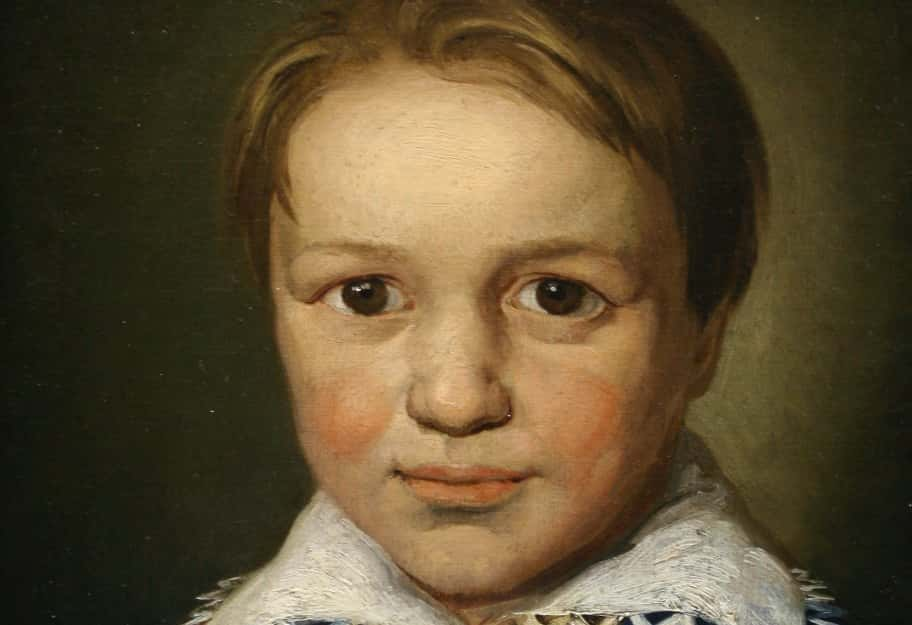 Wikimedia.Commons
Wikimedia.Commons
41. Home Sweet Home
While some musicians and composers travelled frequently for work, Beethoven moved to Vienna as a young adult and lived there for the rest of his life. However, there were a few instances where he had to be persuaded to stay!
40. King B
Along with Johann Sebastian Bach and Johannes Brahms, Beethoven is one of the “three B’s” of classical music (Hector Berlioz is also sometimes included in this list). Famous conductor Hans von Bulow would go one step further and write "I believe in Bach, the Father, Beethoven, the Son, and Brahms, the Holy Ghost of music." Can’t get much higher praise than that!
39. You Go, Girl!
Despite all the symphonies and piano sonatas, Beethoven only ever made one opera. Fidelio follows a story of a brave woman named Leonore who disguises herself as a prison guard named Fidelio to rescue her husband who is being held as a political prisoner. This sounds like a Disney film in the making!
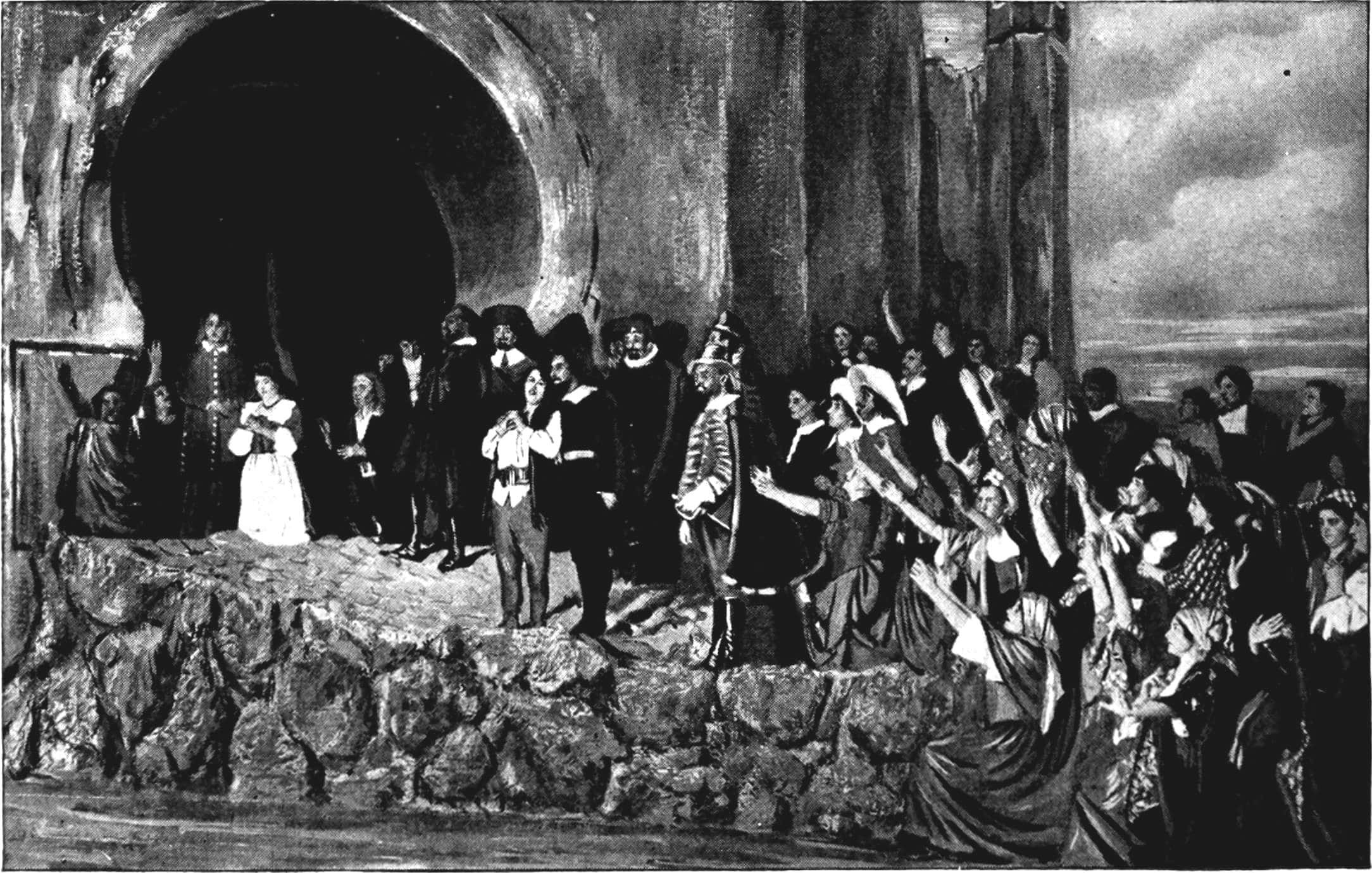 Wikimedia.Commons
Wikimedia.Commons
38. You’re the Socrates to My Plato
In the 1790s, Beethoven was a pupil of several established composers, but none was more successful in his time than Joseph Haydn. If your teacher is known by some as “The Father of Symphony,” you know you’re in good hands!
37. When a Protégé Rises High but Never Forgets His Roots
Despite the fact that Beethoven supposedly resented using his former teacher’s name as a selling point to his own success, he and Haydn remained on mostly good terms. Haydn admired Beethoven’s music, and Beethoven famously attended a concert held in honor of Haydn’s 76th birthday. At the concert, Beethoven allegedly knelt down in front of Haydn and kissed his hand in honor of his former teacher.
36. We All Start Somewhere
Beethoven was named Ludwig after his grandfather (which was a German translation from the original Dutch name Lodewijk). The older Ludwig would also begin the tradition of music in the Beethoven family. He began as a humble bass singer but eventually rose to become the musical director in the city of Bonn.
35. On the Kindness of Strangers
Like many musicians at the time, Beethoven relied at least partially on income provided by a wealthy patron. Two of his early ones were Prince Lichnowsky and Prince Lobkowitz.

Sign up to our newsletter.
History’s most fascinating stories and darkest secrets, delivered to your inbox daily. Making distraction rewarding since 2017.
34. Take That, Mozart!
Such was Beethoven’s popularity that his funeral on the 29th of March, 1827 was a public event attended by up to 30,000 people. Theaters were closed for the day, though this might partly be because so many known artists of the time took part in Beethoven’s funeral as torchbearers and pallbearers in honor of the fallen composer.
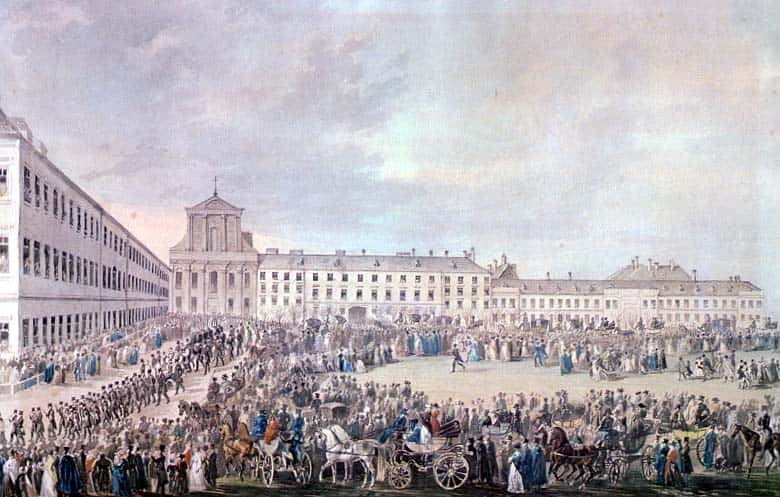 Wikimedia Commons
Wikimedia Commons
33. Yeah, Well You're So Ugly...
Beethoven wasn’t above throwing shade at his contemporaries, even the ones acknowledged to be incredible. Italian composer Gioachino Rossini, the man behind The Barber of Seville and William Tell, was a big fan of Beethoven and arranged to meet with him one day through a mutual acquaintance. Beethoven complimented Rossini on The Barber of Seville, but apparently advised him to stick to comedic operas. When the acquaintance reminded Beethoven that Rossini had already made several successful dramatic operas, Beethoven allegedly declared “Yes, I looked at them. [Serious opera] is ill-suited to the Italians. You do not know how to deal with real drama.” No report is given of how Rossini replied, so we’re forced to assume he simply left the room while everyone else shouted “Oh snap!”
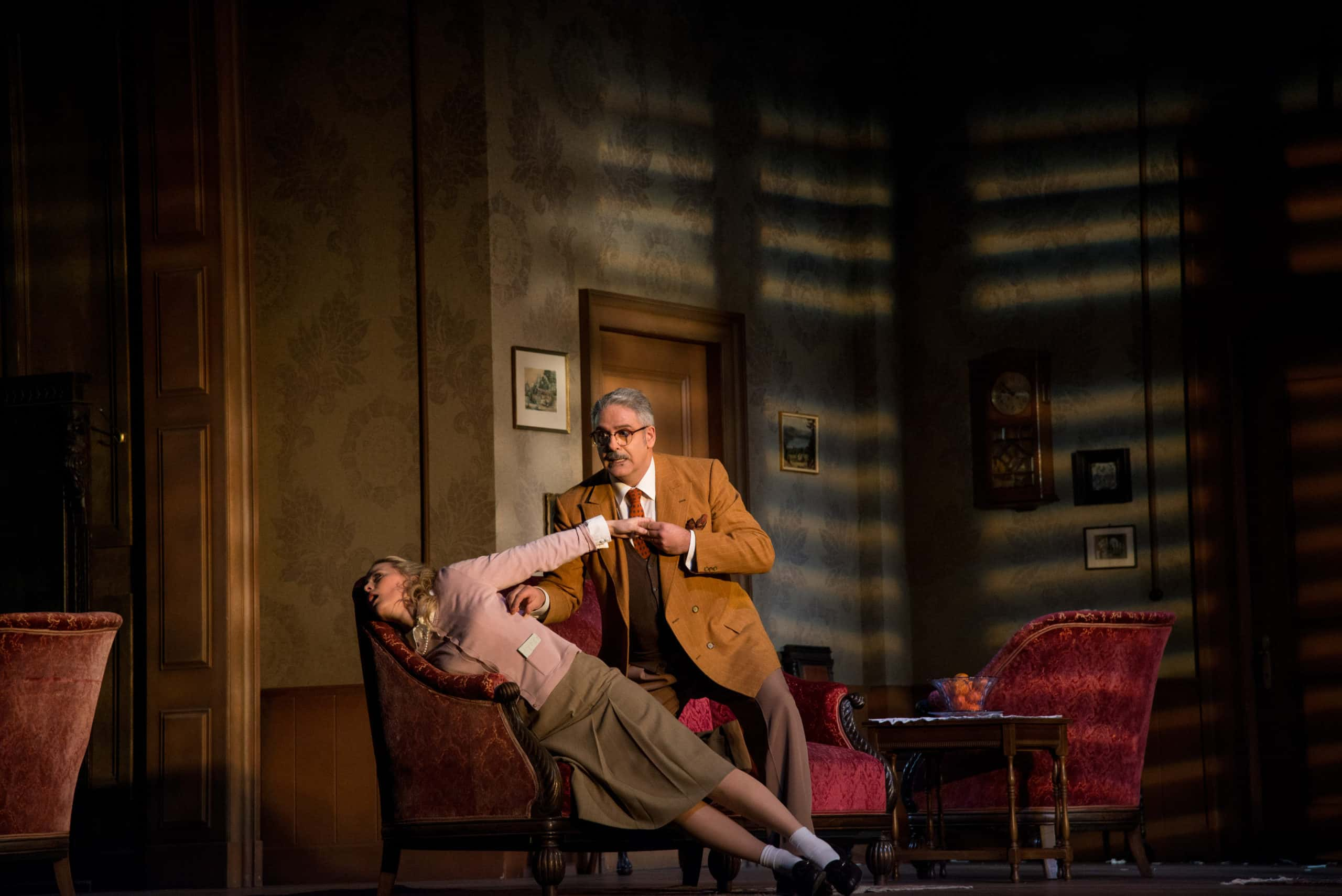 Wikipedia
Wikipedia
32. This Is Why You Don’t Trust a Prince to Pay
In 1808, Beethoven was established in Vienna, but he had been rejected from a position at the royal theatre. Shortly after, he received an offer from Napoleon’s brother, Jerome Bonaparte, to be the music director at his court. So valued was Beethoven that three high-ranking men (Archduke Rudolph, Prince Kinsky, and Prince Lobkowitz) all teamed up and begged Beethoven to stay in Vienna. In return, they would pay him a pension of 4,000 florins a year. However, only the Archduke paid his share of the money when it came time to pay up. Prince Kinsky had been called to war and died, while Lobkowitz just quit his end of the bargain. Miraculously, Beethoven still stayed in Vienna despite being snubbed.
31. Amadeus, Amadeus
One of Beethoven’s biggest influences was Mozart, but there has been endless debate over whether the two men ever met. According to Otto Jahn, a teenaged Beethoven met the well-established Mozart and impressed him with his piano playing. This story is either ignored or disputed by other sources, however. What isn’t disputed, though, is that Beethoven was deeply influenced by Mozart’s music.
 Wikipedia
Wikipedia
30. You’re the Man of the House Now
Whether or not Beethoven did meet Mozart, he didn’t have a long opportunity to do so. The teenage Beethoven’s time in Vienna was cut short when he found out that his mother was very sick. Beethoven returned to Bonn in 1787, only for his mother to pass away shortly afterward. His father’s alcoholism only got worse, which meant that Beethoven took responsibility for his family, which included himself, his father, and his surviving brothers.
29. Go Back to Mother Nature
Despite living in a city for most of his life, Beethoven loved nature. He would often go on long walks in the countryside. Beethoven used a more natural or rural sound for several pieces of music, especially his Sixth Symphony.
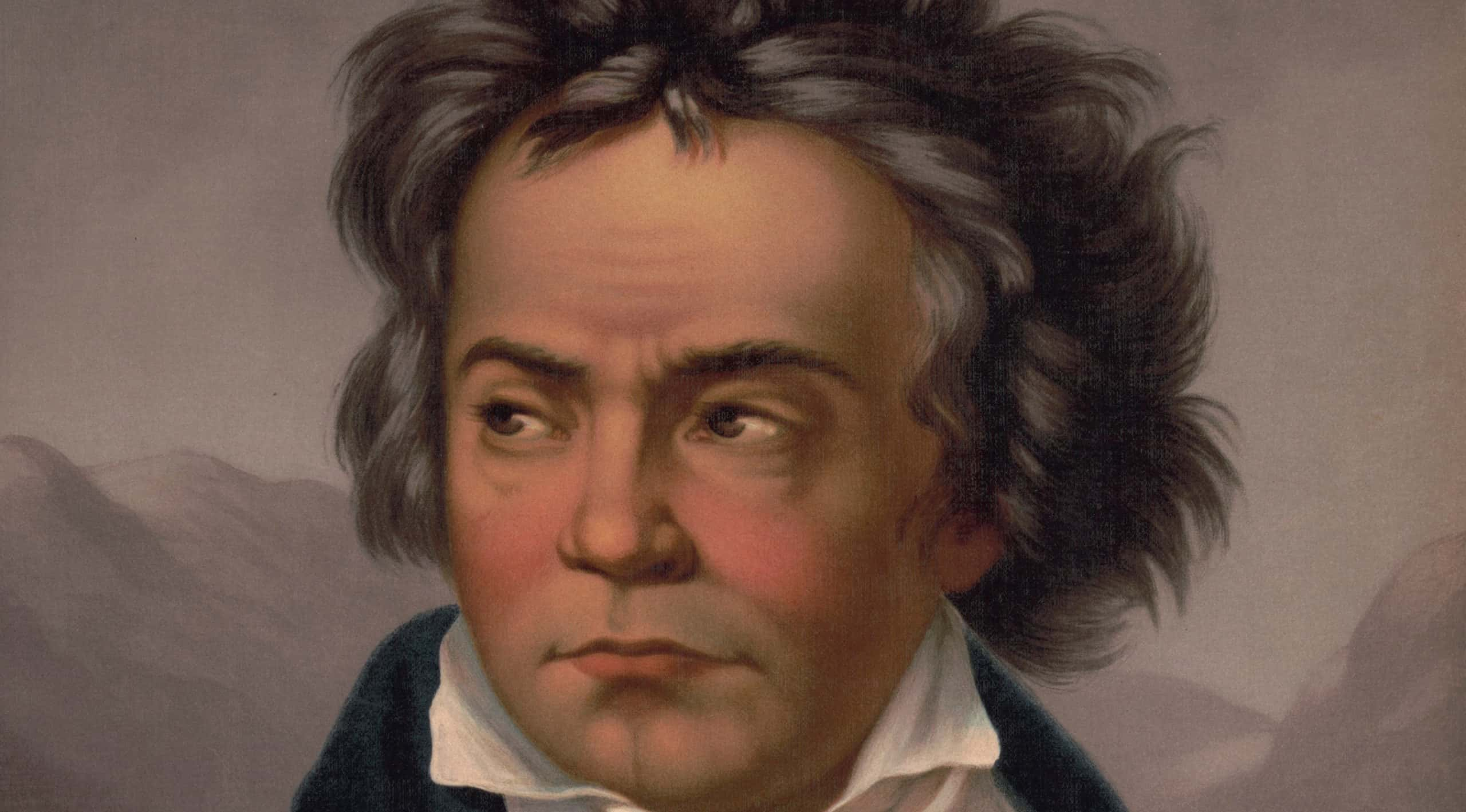 Wikipedia
Wikipedia
28. Thanks a Lot, Dad…
When he was a child, Beethoven was first taught by his father, Johann, who was a harsh teacher (which was only enhanced by his alcoholism). Beethoven was often reduced to tears during his lessons, which began in earnest at the age of five. No doubt Father’s Day was a fun day for little Ludwig.
27. Do You Know What Time It Is??!
While his father was his first instructor, Beethoven was also taught by a family friend named Tobias Friedrich Pfeiffer. Unfortunately for Beethoven, Pfeiffer was an insomniac, so it seemed perfectly normal to him to drag little Ludwig from his bed at night and have him practice piano.
26. The Evolution of Beethoven
Beethoven’s musical career has often been divided into three periods based on the type of music that he was making. The early period is based most strongly on the works of Mozart and Haydn as Beethoven was busy trying to find his own style. His middle period is often called his "heroic" period, and it began after he began to go deaf. This music focused on themes of heroism and struggle and covered most of the music he made in his career. His late period, meanwhile, began after 1815. The music he made during this time was more intellectual, pioneering, and was very personal to Beethoven himself.
25. You Beat Napoleon? Way to Go!
Beethoven was bitterly disappointed by Napoleon Bonaparte’s betrayal of the ideals of the French Revolution. So when Bonaparte’s forces were defeated by the Duke of Wellington at the Battle of Vitoria in 1813, Beethoven was inspired to write his Seventh Symphony. Because of its bombastic sound and its inspiration, it’s been referred to as a "battle symphony." It was also first performed at a charity concert for victims of the Napoleonic Wars.
24. I See What You're Saying
When his hearing loss was nearly complete, Beethoven resorted to other means of communication. He would have those wishing to communicate with him write what they wanted to say in a book. He would read their messages and either answer them aloud or write in response. No doubt he would have been thrilled had he lived long enough to use Twitter.
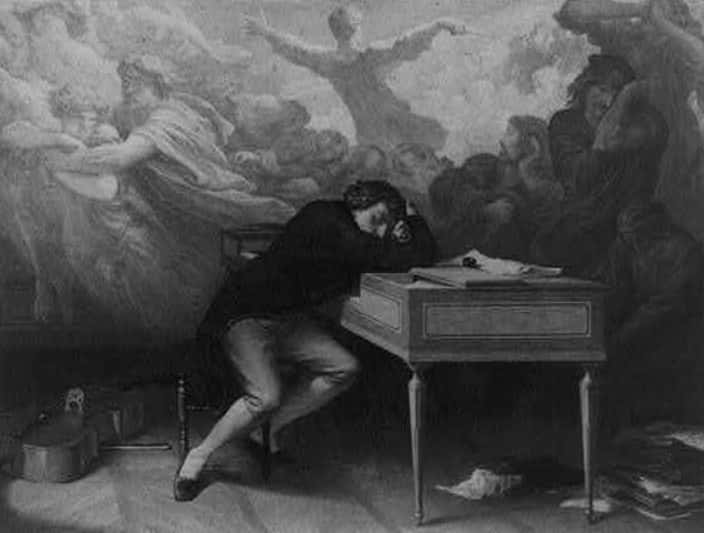 Picryl
Picryl
23. Not Always Appreciated in Its Time
Although Beethoven became very popular and beloved during his own lifetime, he didn’t always enjoy this high praise. His Second Symphony was controversial upon its release because it defied expectations for how a symphony should sound or be organized. The critics gave harsh reviews, including one that famously declared that Beethoven’s Second Symphony was "a hideously writhing, wounded dragon that refuses to die, but writhing in its last agonies and, in the fourth movement, bleeding to death.” Ouch…
22. You People Like This?
However, that response was nothing compared to what people initially thought of the Seventh Symphony. Beethoven himself was convinced that it was one of his best works. However, according to Friedrich Wieck, who attended the rehearsals, the musicians thought that Beethoven must have been drunk when he made the symphony! Much to their surprise, audiences and critics praised the symphony when it was performed.
21. Glorious Ninth
Beethoven’s “Ode to Joy,” found within his Ninth Symphony, was adopted into “The Anthem of Europe” in 1972. The anthem was also used as the temporary national anthem of the newly-formed nation of Kosovo until they recorded a new one.
20. I'll Show You!
Beethoven’s temper and his refusal to respect the biased class system were both legendary traits of his. At one point, Prince Lichnowsky jokingly threatened to place the composer under house arrest if he refused to play for a group of visiting French officers. Beethoven left the Prince in a great fury, went to another patron’s estate, and smashed a bust of the Prince (no doubt because smashing the real one would have gotten him arrested).
19. The Rules Don’t Apply!
Understandably, Beethoven hated few things more than classism being used against him, and because of his clout as a musician, he was in a position to stand up to the aristocrats if he was displeased. As a pianist, he would stop playing if his audiences didn’t pay attention or started talking amongst themselves. If he was demanded to play at a party, he would simply refuse. Archduke Rudolph, one of his patrons, eventually told his peers that Beethoven was to be considered above the normal social etiquette of the time. So in that sense, Beethoven was the Kanye West of his time.
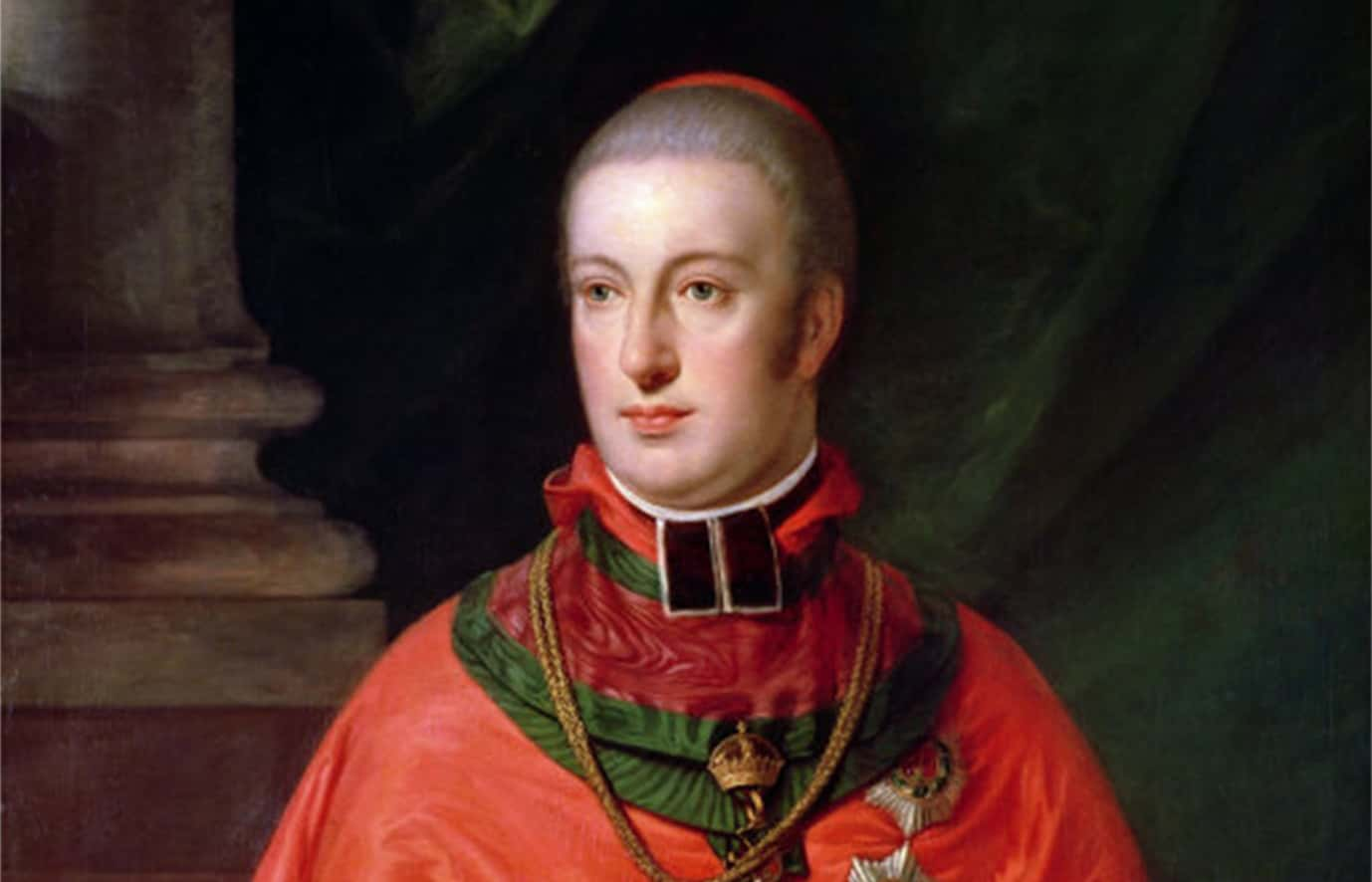 Wikipedia
Wikipedia
18. Tragedy in Triumph
In 1824, Beethoven launched the premiere of his Ninth Symphony to thunderous applause at its conclusion. However, Beethoven’s deafness had become so complete that he needed to be physically turned around to receive the applause. He had not been able to hear either the music of his symphony or the warm reception it received. Small wonder that he is alleged to have burst into tears at this finest of hours.
17. Who Knew Thor Was a Fan?
According to a witness of Beethoven’s death, a clap of thunder sounded at the very instant he left this Earth; in any case, he did certainly die in the midst of thunderstorm. We can only imagine the kind of music that he must be making up in Heaven if the thunder is any indication!
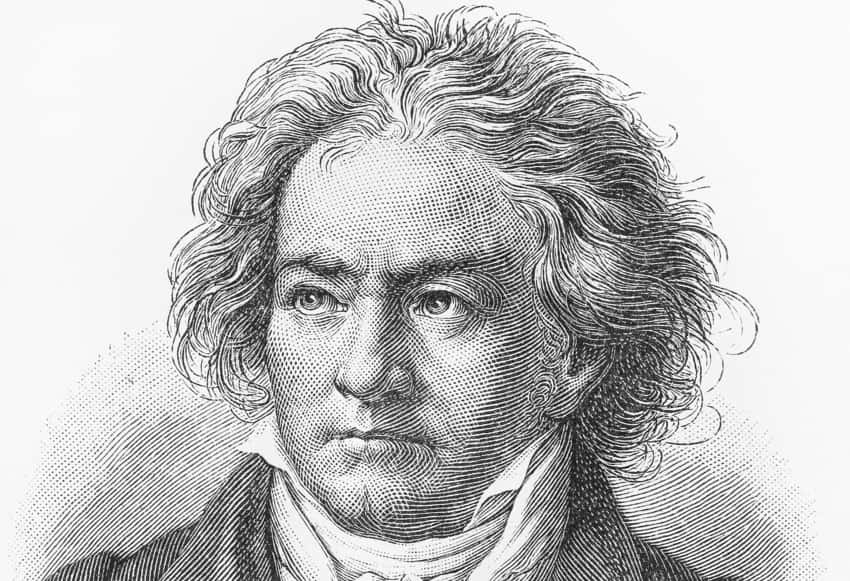 Shutterstock
Shutterstock
16. Because Seven Is Too Old for a Child Star!
Beethoven’s father, Johann, was well aware of how successful Mozart had been when he was toured around Europe by his own father, Leopold. Johann, therefore, tried to promote his own son as a musical prodigy. At his son’s first public performance, Johann claimed that Beethoven was six even though he was actually seven at the time.
15. Why Name That Thing for That Person??
Among the many things that have borne Beethoven’s name, a clumsy St Bernard with his own film franchise isn’t even the most random thing. That honor goes to the third-largest crater on Mercury, which is named after the composer. Maybe it’s shaped like his head?
14. When a Hero Lets You Down
Beethoven’s third symphony, completed around 1804, was originally dedicated to Napoleon Bonaparte, whom Beethoven initially believed embodied the spirit of the French Revolution. Even after he re-dedicated the symphony to his wealthy patron instead (gotta keep your boss happy), Beethoven titled his symphony "Buonaparte." However, according to his former secretary, when Beethoven was informed that Bonaparte had declared himself Emperor of the French, Beethoven was so enraged that he ripped the title page of his symphony in half. The symphony was re-titled Sinfonia Eroica ... composta per festeggiare il sovvenire di un grande Uomo. This translates to “Heroic Symphony, Composed to celebrate the memory of a great man." Savage, Beethoven, very savage.
 Wikipedia
Wikipedia
13. What Did You Say?
Sources have famously clashed over what exactly Beethoven’s final words were before he died. According to one source, Beethoven declared "There, do you hear the bell? Don't you hear it ringing? The curtain must drop. Yes! My curtain is falling.” Other sources swear that his final words were “I shall hear in heaven.” What is known for sure is that his final recorded words made up the phrase “Pity, pity—too late!” He’d written that as a response to news that his publisher was sending over a gift of 12 bottles of wine. Too late, indeed.
12. And the Vultures Close In
After Beethoven’s funeral, one of the gravediggers was allegedly offered a great sum of money to go and steal Beethoven’s head from within the grave. Beethoven’s friends found out about this disgusting offer and made sure that the grave was guarded for a time. We can only imagine the Twitter outrage that an offer like that would have sparked today.
11. In the Eye of the Beholder
One thing that Beethoven became known for was his ability to improvise musically while playing the piano or the violin. This initially infuriated his father, who would try to beat the improvisations out of him when he was a child.
10. A Minor Family Dispute
Following the death of his younger brother, Kaspar, whom Beethoven had spent a small fortune looking after, a custody battle flared up between Kaspar’s widow, Johanna, and Beethoven himself. Beethoven wanted custody of Kaspar’s son, Karl, because he considered Johanna to be an unfit mother. Although joint custody was granted between Johanna and Beethoven, the custody battle raged for years afterwards as Beethoven tried to get full custody. Small wonder he didn’t write an opera out of it!
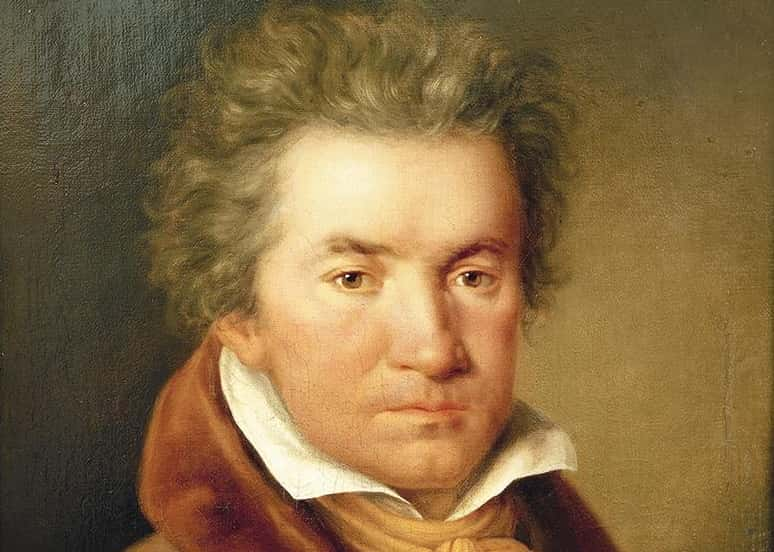 Wikipedia
Wikipedia
9. My Favorite Uncle
Beethoven ended up proving to be just as hard on Karl, if not more so, than his own father had been on him. He frequently interfered in Karl’s life and pushed him to live as moral a life as he could, all while he was dragging on custody battles with Karl’s mother, Johanna. Karl eventually attempted suicide in July 1826 but survived and spent his recovery living with his mother. For what it’s worth, Karl and his uncle eventually did reconcile just before Karl enlisted in the army, which he presumably was well prepared for after what he’d already been through.
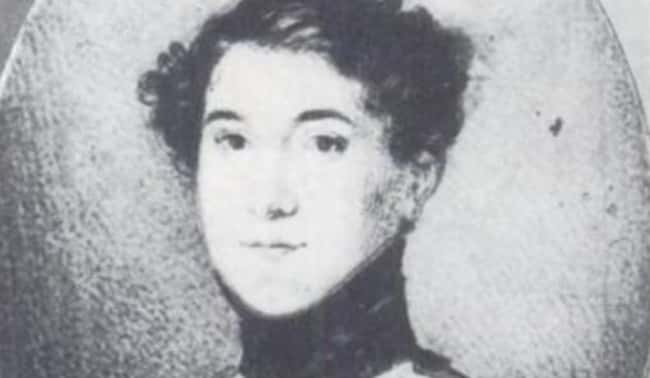 Wikipedia
Wikipedia
8. Shared Admiration
Austrian composer Franz Schubert was sadly underappreciated in his own short lifetime, but he did manage to impress Beethoven. According to Anton Schindler, when Beethoven was on his deathbed in 1827, Schindler gave him several manuscripts containing Schubert’s work as a distraction from his pain. Beethoven was reportedly overwhelmed by the beauty to be found in Schubert’s work. Schubert himself visited the ailing Beethoven several times, and later served as a torchbearer at Beethoven’s funeral. Sadly, he would follow Beethoven in death later that year, and was buried next to Beethoven by Schubert's own request.
7. The Tortured Artist
It should surprise nobody that in between the childhood traumas he suffered, the responsibility of looking after his family at so young of an age, and his gradual deafness, Beethoven was not always the most cheerful sort of man. In 1802, Beethoven wrote a letter to his brothers, known as the Heiligenstadt Testament, in which he addresses his despair at going deaf, and his thoughts of suicide. Beethoven hid the letter in his private belongings right up until he died, likely never showing it to anyone. It was only discovered upon his death from ill health.
6. Not a Daddy's Boy
What’s strange about the Heiligenstadt Testament is that Beethoven wrote down his brother Carl’s name in the letter but left a blank space instead of writing his other brother’s name, Johann. Some speculate that Beethoven so hated his alcoholic father that in this depressed state he couldn’t even bring himself to write down his father’s name, even when it was a completely different Johann that he was addressing.
5. Can You Hear Me?!
Beethoven first showed signs of deafness in 1798 when he suffered a rage-induced fit. He boiled over with fury when his work was interrupted and ended up falling over. When he got up, he found he was deaf. His hearing only partially returned and then worsened throughout his life, and he wrote about his struggles with his hearing loss as early as 1801. Historians have yet to discover the exact reason for his deafness, though some of the suspects are typhus and an auto-immune disorder.
4. Our Habits Destroy Us
One of Beethoven’s more eccentric habits was to douse his head with cold water to keep himself awake and focused. A theory claims that this habit was the reason behind his deafness, while a less serious theory credits Beethoven with founding the Ice Bucket challenge.
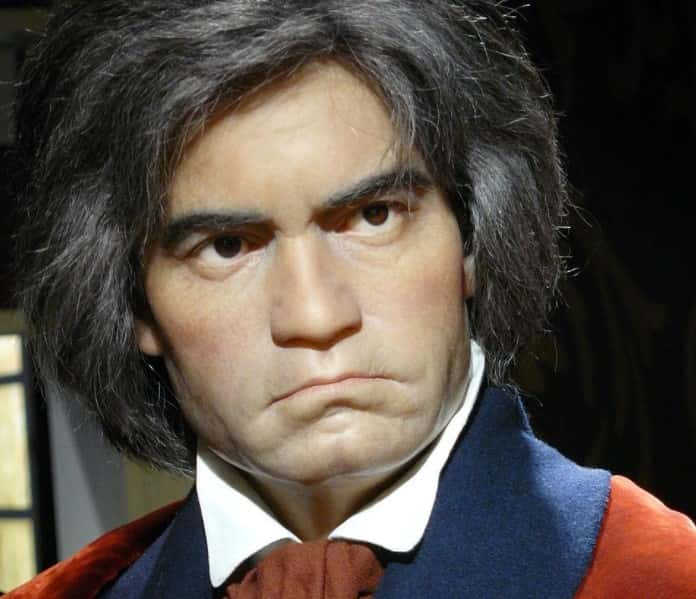 Pixabay
Pixabay
3. My One True Love
In 1799, Beethoven met a gifted piano pupil named Josephine Brunsvik, and quickly fell in love with her. Even when she married Count Joseph Deym, Beethoven continued as a musical instructor, presumably with a sad expression on his face as he looked across the piano at Josephine.
2. Forced Apart
When the Count died in 1804, Josephine and Beethoven kept in touch to the point that her family commented on its indecency. Beethoven wrote her passionate love letters (15 of which still survive), and she responded with letters of her own. However, because of his common background, Josephine’s aristocratic family put pressure on her to end the acquaintance with Beethoven. By 1807, faced with the threat of losing custody of her aristocratic children if she married the commoner Beethoven, Josephine began withdrawing from him.
1. Farewell, My Darling
When Josephine von Brunsvik died in March 1821, Beethoven wrote his last two piano sonatas that same year. Most historians and musicologists believe the sonatas to be requiems for his lost love. They even share a resemblance to the "Andante favori" (also known as Josephine’s theme), which many have noticed has a subtle chant going "Jo-seph-ine" within the music. Now stop cutting those onions, darnit!!
Sources: 1, 2, 3, 4, 5, 6, 7, 8, 9, 10, 11, 12, 13, 14, 15, 16, 17


